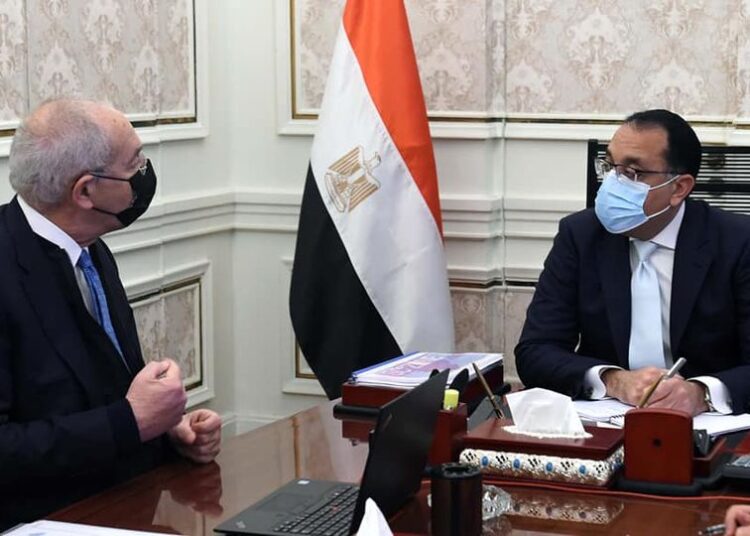International tenders for green hydrogen projects in the Suez Canal Economic Zone (SCZone) came under official review on Monday.
Prime Minister Moustafa Madbouli said during his meeting with SCZone General Authority chairman Yehia Zaki that the Egyptian government, under the leadership of President Abdel Fattah El Sisi, is keen to attract more investment to the SCZone, especially in clean energy projects.
The government is working hard to maximise the benefit from the strategic location of the Suez Canal axis, the premier said, adding that Egypt is making great progress towards becoming a global logistics and economic hub in green hydrogen.
Zaki reviewed tenders for hydrogen projects, which include the first scheme to produce green ammonia in Sokhna industrial zone, an SCZone affiliate.
The project will be implemented through a global alliance in co-operation with the Egypt Sovereign Fund.
Other bids for green hydrogen in the Sokhna area and East Port Said area have been received, Zaki said.
Meanwhile, a national road network with improved tunnels and links to the African road network as part of the Pan-African Highway, which is also known as the Cairo-Cape Town Road, is an important stage for the SCZone to become one of the most important crossroads for trade between Egypt and Africa.
The zone has easy access to global markets thanks to its strategic geographical location, free trade agreements with many countries, and advantages of Egypt’s Economic Zones Law and its executive regulations, Zaki said.
In another meeting with Minister of Environment Yasmine Fouad, Minister of Finance Mohamed Maeet and Minister of Local Development Mahmoud Shaarawi, Premier Madbouli followed up progress to date in the project to convert waste into electricity in the governorates of the first phase.
The project will be a qualitative shift in dealing with the country’s waste problem, Fouad said.
The prime minister instructed the authorities concerned to speed up the implementation of such projects, ensuring that they are completed on schedule and meet global standards and specifications.
Fouad said it was important to provide adequate financing mechanisms for companies converting waste into energy because of the high investment costs of such projects.
Obstacles should be removed to guarantee the sustainability of the system amid government efforts to establish infrastructure financed from the state budget, Fouad added.
The first phase of the project has so far cost around LE3 billion, Fouad said, adding that the new waste scheme was three-pronged: establishing the infrastructure for the collection, transfer, and recycling system; establishing the legislative structure with the law on waste that regulates the financial resources of the scheme; and monitoring the results.
Waste conversion is necessary to counter the problem of waste that negatively affects health, the environment, and the cleanliness of streets, Fouad said, adding that she hoped the project would be a model for other environment projects in Egypt.
Fouad went on to say that her ministry will use its industrial, technological and human capabilities to implement the solid waste management system and achieve maximum benefit from waste that is generated daily by converting it into smart energy solutions.






Discussion about this post